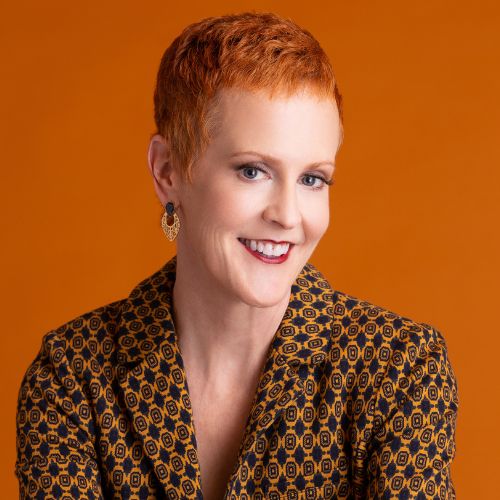Have you ever felt like your career no longer reflects the person you’ve become or the life you envision? You’re not alone. An astonishing 52% of professionals consider a career transition by age 45. They begin questioning whether their current path truly aligns with their purpose. Transitioning to a new career is more than just a leap of faith—it’s an act of courage, a statement that your growth matters. While the process can feel daunting, it’s also ripe with opportunities to rediscover your passion, redefine your goals, and take control of your future.
In this article, we’ll dismantle the myths that often hold us back from pursuing a career transformation and explore strategies to help you embrace change with clarity and confidence. Whether you’re considering a pivot or a profound reinvention, uncovering the truth behind these misconceptions might just be the key to unlocking a vibrant and fulfilling new chapter in your professional journey.
Misconception #1: “It’s Too Late to Change Careers”
The belief that reinvention has a deadline is one of the most limiting myths holding professionals back. Here’s the truth: age isn’t a barrier—it’s your superpower. Your career journey has equipped you with a unique blend of experience, wisdom, and refined skills that make you invaluable in any field. From problem-solving abilities to emotional intelligence and a robust professional network, you possess assets younger professionals are still cultivating.
Mid-career is a powerful vantage point, a launchpad to align your work with your true passions. Studies show that many professionals transition successfully after 45, proving it’s never too late to rediscover your potential and create a meaningful, impactful career that excites you.
Actionable Tip:
Take time for a self-inventory: assess your skills, strengths, and passions. Identify how these align with potential new career paths. This exercise boosts confidence and helps you craft a compelling narrative, allowing you to articulate your unique value to prospective employers or clients with clarity and conviction.
Misconception #2: “You’ll Have to Start Over from Scratch”

Many professionals fear that transitioning to a new career means erasing years of hard work and starting from the bottom. But here’s the truth: your achievements don’t vanish—they evolve. Every experience you’ve had, every skill you’ve honed, adds value to your new path.
Transitioning means leveraging your expertise in fresh, exciting ways, not starting over. The reality is that transitioning doesn’t erase your past achievements—it builds upon them. Your previous experiences have equipped you with a unique set of skills and perspectives that can be invaluable in a new industry or role.
Reframing Your Experience:
Your past isn’t irrelevant—it’s a treasure trove of transferable skills. Frame your expertise to fit new opportunities.
For example, a teacher transitioning to corporate training can highlight their communication strengths, while a salesperson joining a nonprofit can leverage their relationship-building and persuasion abilities. Your unique journey enhances your value in any field.
Actionable Tip:
Invest time in networking and mentorship within your desired field. These relationships offer invaluable insights, helping you translate your existing skills to new roles while bridging knowledge gaps. Surround yourself with guides who inspire and support your career transformation.
Misconception #3: “Career Changes Always Mean Financial Instability”
It’s natural to worry about finances during a career shift. But the belief that transition always equals instability is a myth that can be managed with strategic planning and foresight. Your financial security doesn’t have to be sacrificed for career growth.
Strategies for Financial Stability During Transition:
- Upskilling While Employed: Learn the new skills required for the field you want to transition to while still working. This way, you can keep earning and prepare for the transition simultaneously.
- Start Freelancing or Consulting: Take on freelance projects or consult in your new field. This is a good way to bridge any income gaps and gain experience until you make a full transition.
- Gradual Transition: Transition into your new career by reducing hours in your old career while ramping up the work in your new field.
By planning wisely, you can minimize financial risks and focus on creating a career that inspires and sustains you.
Actionable Tip:
Create an all-encompassing financial plan of action for your transition. Include in this a fully thought-out budget, savings, and possible interim income methods. Consider finding a financial planner to help you navigate your finances for this career shift.
Misconception #4: “You Need a New Degree or Certification to Make the Leap”

Many mid-career professionals mistakenly believe that career transitions require expensive new degrees. While some fields demand specific credentials, most offer alternative pathways to build knowledge and credibility without significant financial or time investments.
Alternative Ways of Gaining Credibility:
- Micro-Credentials: Earn focused certifications in essential skills to showcase your readiness.
- Industry-specific workshops: Gain practical, up-to-date knowledge to quickly bridge gaps.
- On-the-job learning: Many employers value hands-on experience over formal education.
- Online courses and MOOCs: Platforms such as Coursera and edX offer courses from some of the best universities at a fraction of the cost of traditional education.
Actionable Tip:
Connect with professionals in your target industry to uncover key skills and qualifications. Ask about alternative ways to acquire them and gain insights into what truly matters to employers. These conversations can streamline your preparation, saving time and money while aligning your efforts with industry expectations.
Misconception #5: “You Have to Know Exactly What You Want Before Making a Change”
Waiting for perfect clarity before acting often keeps us stuck. The truth? Clarity emerges through exploration. Career change isn’t about knowing every answer upfront; it’s about learning as you take bold, intentional steps forward.
Embracing Exploration and Experimentation:
- Side Hustles: Test your interests by freelancing or starting a small venture in your desired field.
- Volunteering: Contribute your skills to organizations in industries you’re exploring.
- Job Shadowing: Observe professionals to gain firsthand insights into potential roles.
- Informational Interviews: Expand your understanding by speaking with those already thriving in your areas of interest.
Actionable Tip:
Pick one simple action to explore a new career path—volunteer for a cause, take an online course, or attend an industry event. Reflect on the experience to assess how it resonates with your values and interests. Small, deliberate steps can spark clarity and momentum.
Misconception #6: “You’re on Your Own During a Career Transition”

Career transitions are more manageable and fulfilling with the right support system. Surrounding yourself with the right allies can provide guidance, motivation, and opportunities.
The Power of Support:
- Career Coaches: Offer tailored strategies, accountability, and a clear action plan.
- Mentors: Share industry insights, open doors, and provide valuable guidance.
- Professional Networks: Expand connections, uncover opportunities, and gain new perspectives.
- Peer Support Groups: Share experiences, gain encouragement, and navigate challenges with like-minded individuals.
Actionable Tip:
Creating a network doesn’t have to be overwhelming. A few strategic steps can help you connect meaningfully with mentors and advisors.
- Identify Key Connections:List five individuals in your network or extended circle who could guide or advise you.
- Reach Out Intentionally:Contact each person with a clear and specific request—ask for advice, introductions, or industry insights.
- Engage in Communities:Join an industry-specific group or online community, such as a LinkedIn group, to exchange ideas and expand your network.
These simple actions will help you create a collaborative foundation to propel your career transformation.
Take the First Step Toward Your Next Career Chapter
The misconceptions that hold you back are only as powerful as you let them be. It’s never too late to pursue a fulfilling career, your experience is a treasure, financial security is achievable, and clarity grows with action. Remember, you’re not alone—support is all around you.
Your journey begins with one bold step. Whether it’s exploring a new skill, reaching out to a mentor, or researching opportunities, every action moves you closer to the vibrant, purpose-driven career you deserve.
The future you envision is within reach. Now is the time to trust your potential, embrace the unknown, and take action. Ready to make your dreams a reality? Let’s start building a career that inspires and excites you. Your future self will thank you. Set up a consultation now and start creating your dream career!



